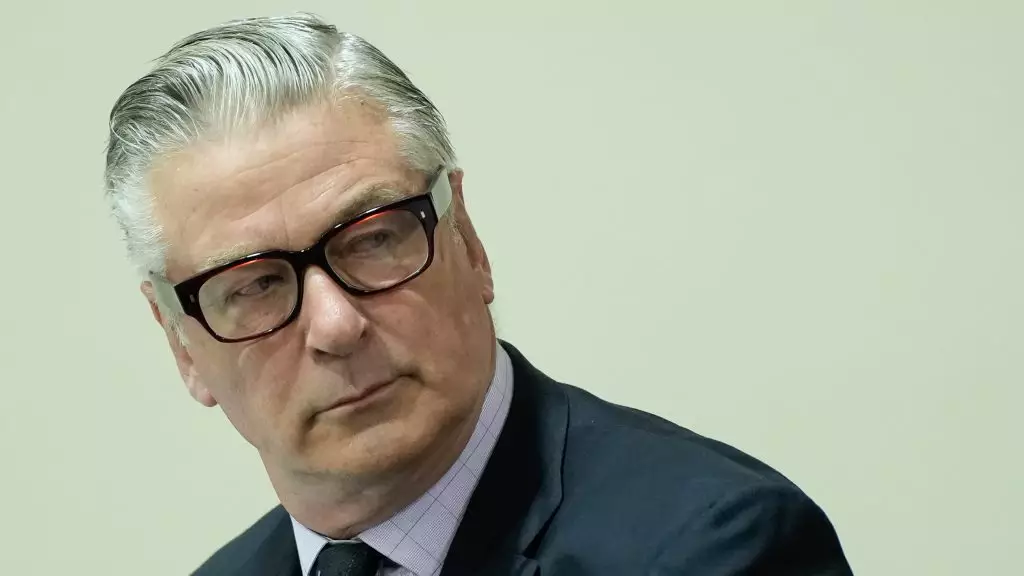The tragic incident on the set of “Rust,” which resulted in the death of cinematographer Halyna Hutchins, has marked a significant turning point in Hollywood’s relationship with safety and accountability. Alec Baldwin, the film’s star and producer, found himself at the epicenter of this heartbreaking event when a prop gun he was handling discharged live rounds. This incident not only took a life but also thrust Baldwin into a lengthy legal and personal battle, drawing public scrutiny and media sensationalism. As Baldwin’s involuntary manslaughter charges were recently dismissed, the actor is determined to reclaim his narrative, vowing to present his side of the story.
In a recent appearance on the “Fail Better” podcast hosted by David Duchovny, Baldwin expressed his desire to reveal what he describes as the untold truth surrounding the incident. He articulated that the narrative has been shaped largely by external voices, many of which aimed at vilifying him. “The press suppressed every story that could benefit me and amplified every story that could hurt me,” Baldwin lamented, highlighting the feeling of victimization that has plagued him for the past three years. His frustration reveals the broader implications of how media can mold public perception, often prioritizing sensationalism over transparency.
The dismissal of the charges against Baldwin by Judge Mary Marlowe Sommer raises critical questions about the judicial process and the handling of evidence. Baldwin indicated that he and his legal team had amassed a considerable amount of information that could have potentially shifted the trial’s outcome. The question arises: what has been the cost of this prolonged scrutiny? For Baldwin, the ramifications extend beyond mere legalities; they touch on the essence of dignity and truth in a media-driven world.
Baldwin’s reflections on public sentiment reveal the harsh realities that come with celebrity status, especially when entwined with tragedy. “When people hate you on that level, they want three things: They want you to die, go to prison, or be canceled,” he revealed. This statement resonates with a broader cultural narrative where public figures, especially those embroiled in controversy, face fierce backlash. The concept of being “canceled” can often feel like a societal death, where one’s contributions and existence are marginalized to the point of invisibility.
Moreover, Baldwin’s acknowledgment of a possible return to the professional sphere underscores a complicated dynamic between personal redemption and public perception. As he mentioned, “Things are coming back my way professionally,” illustrating an inner resilience despite the chaos surrounding him. Baldwin’s journey encompasses not just the quest for justice over the incident itself, but also a larger struggle for mental and emotional stability amidst public disdain.
While Baldwin is grateful that the legal case was dismissed, he is also candid about his desire for a definitive resolution, one that could have resulted from a full trial. He expressed an intent to embark on what he describes as “another phase” in the coming months, looking to bring new revelations to light. This quest reflects a blend of personal catharsis and a bid for clarity in an increasingly complicated narrative.
As Baldwin prepares to step back temporarily—indicating a need for rest—one cannot help but consider the broader implications of this saga in Hollywood and beyond. With safety protocols faltering and accountability being questioned, the tragedy of Halyna Hutchins may serve as a crucial catalyst for meaningful change in the industry. Baldwin’s story, while deeply personal, encapsulates the intersection of individual actions, societal responses, and the complexities of navigating guilt and truth in a modern context.
Alec Baldwin’s quest to tell his side of the story is not merely an act of defiance but rather a necessity for clarity in a world where narratives are often manipulated. The unfolding of his next steps will undoubtedly be watched closely, reminding all of us of the fragility of life and the weight of responsibility in the pursuit of artistry.


Leave a Reply